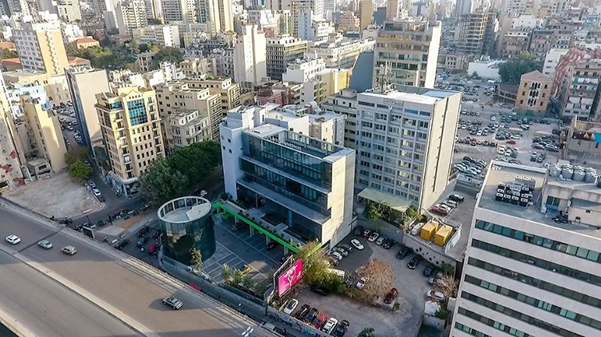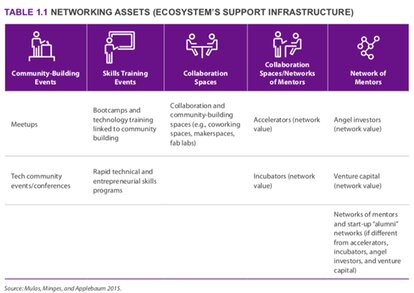Can Beirut become a major tech hub in the MENA region?

A strong tech sector is a key pillar to transform the Lebanese economy
Lebanon is one of the most indebted countries in the world and is suffering from a major economic crisis, partly due to the fact that the country has been struggling for months to form a government. Recently, the finance minister warned of a serious financial crisis following the economic crisis. Resolving this situation is highly complicated as the country is in a difficult geographical (and geopolitical) spot and also doesn’t have any considerable natural resources or other goods to export. No surprise the country has a continuous trade deficit and has struggled to create incremental wealth in the last 40 years. On top of that, Lebanon is also known for its corruption and cronyism, it ranks at 143 on the Corruption Perception Index, the same rank as Guatemala, Kenya, Bangladesh and Mauritania.
The situation of the Lebanese economy certainly is highly complex due to (geo-)political, cultural, historical and economic circumstances and transforming the economy to make it competitive and future-ready requires considering many parameters.
One important pillar is to focus on the digital transformation as this will be crucial to keep up with the world economy. Becoming a renowned startup hub in the MENA region could help transform the economy, make it future-ready and help overcome geopolitical barriers as well as create jobs and wealth for the Lebanese people.
Beirut already has an impressive scene of founders, accelerators and co-working spaces
The benefits of building a startup ecosystem are widely acknowledged and fortunately, the Lebanese government along with many great initiatives and stakeholders in the country are actively working towards building a successful tech scene. I had the chance to visit the country recently and to speak to founders and other stakeholders from the ecosystem and was astonished by the existing infrastructure, the number of exciting startups and initiatives and the determination of stakeholders in the ecosystem to push for its development.
And there are many reasons to be optimistic: The Lebanese central bank has committed $700m to support the tech ecosystem and the government has invested heavily in infrastructure — the Beirut Digital District (BDD) is booming and is home to many startups, accelerators and VCs. And while major global VCs have yet to discover the country, some leading organisations already show an increased interest in Lebanon — organisations like TechCrunch and Seedstars hosted major events in Beirut last year.
When I visited Lebanon I attended the Pitchworthy.org’s pitch day, held in the Grand Serail, the headquarter of the prime minister. The choice of the location speaks for itself – building a successful tech sector in Lebanon is a top priority for the government. Pitchworthy is one of the leading initiatives in the country with great local and global connections. Some very impressive startups pitched at this event, like Anachron Tech, a robo advisory solution for banks, or Jet, a platform that lets users sell and buy computing power from consumer devices. I also had the opportunity to meet other successful startups like Groovy Antoid who were part of the Techstars chapter in Singapore. The vision and determination of these companies are in no way inferior to their peers in Berlin, London or Paris.
Startups in Lebanon struggle to scale
Beirut is known as a liberal-minded, cosmopolitan and vibrant city with many young, ambitious people. According to the World Bank, the key strength of the ecosystem in Beirut is the presence of highly talented and well-educated entrepreneurs and that became very apparent to me when I visited.
However, according to CB Insights Lebanese startups only raised around $43.5m in the last 10 years. The World Bank considers the startup scene in Beirut to be an ‘early to middle-stage ecosystem’. CB Insights only lists 79 deals in the last 10 years including 4 M&A exits. There seems to be a lot of early stage activity but it seems to be very difficult to accelerate beyond the early phase. There are many startup competitions and pitch days in which highly talented founders pitch promising ideas but it seems to be difficult to get beyond that.
This points to a lack of a support infrastructure that helps startups to grow beyond the initial phase. All major tech hubs around the world thrive on a networking infrastructure of other successful entrepreneurs, mentors and advisors that help early-stage companies grow.
A strong support infrastructure is crucial to help early-stage startups grow
The World Bank also points out that the ‘supporting infrastructure (for example accelerators, mentors) and the community is still maturing’. In their report, they show a framework of an infrastructure that needs to be in place to provide a sufficient network for entrepreneurs to turn to:

There are already a number of community building events and collaboration spaces in Beirut, like Antwork and other co-working spaces in the BDD. These are very important to get like-minded people together. From my conversations with people from the ecosystem the key areas where the ecosystem needs more support are:
- Skills Training: As pointed out, there are many highly talented, well educated entrepreneurs with relevant experience in Lebanon. However, there is a need for courses, workshops and events that help entrepreneurs to refine ideas, develop business plans and teach skills that are needed to transform promising ideas into successful businesses. Organisations and stakeholders who are supporting the ecosystem should therefore provide more of these trainings — this should start at the university level when people first get in touch with entrepreneurship.
- Mentors: As the ecosystem is still in a very early stage there are barely any great role models and mentors that can help young businesses grow and act as advisors. Therefore, the community should look beyond Lebanon and try to get mentors from abroad involved. Some of the challenges Lebanese entrepreneurs face are of course unique to the local market but others are the same around the globe. Getting mentors from abroad involved can also be helpful with getting access to the international tech community, including investors or potential partners from abroad.
Lebanon and particularly Beirut clearly has the potential to become a major tech hub in the region as the most important assets are always the people and there’s many of highly talented people in the country. While the success of startups of course relies on many different parameters, the environment in which young companies grow certainly plays a pivotal role. Stakeholders that are working on developing the ecosystem should now make sure that entrepreneurs have access to the supporting infrastructure needed to get early-stage startups to the next level.